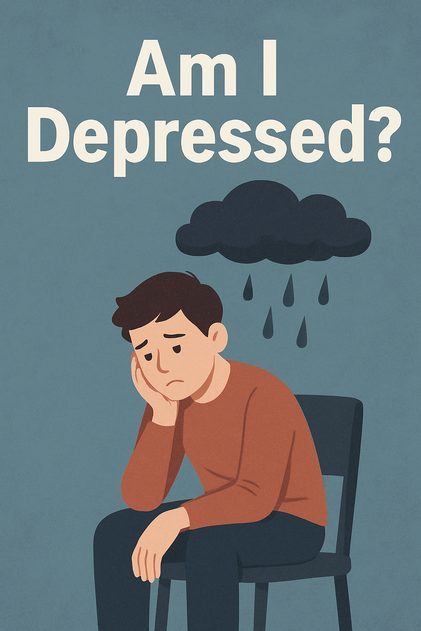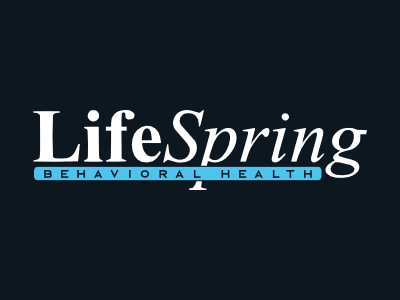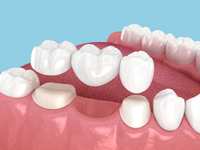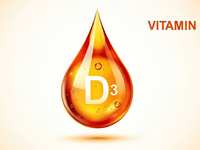- Categories :
- More
Am I Depressed?

By Michael P. Groves, MA, NCC, LPC
People who contact the clinic sometimes ask, “How can I know if I’m depressed?’ It’s not an unusual question. To answer, we need to start by asking what depression is. Depression is a mood disorder characterized by persistent feelings of sadness, hopelessness, and loss of interest or pleasure in activities that a person once enjoyed. It is more than occasional sadness and affects how a person feels, thinks, and behaves, often interfering with their regular daily functioning.
The American Psychiatric Association (APA) defines depression (major depressive disorder) as involving a set of symptoms lasting at least two weeks that represent a change from prior functioning, and that cause significant distress or impairment in social, occupational, or other important areas of life (APA, Diagnostic and Statistical Manual of Mental Disorders, 5th ed., Text Revision [DSM-5-TR], 2022).
Does that mean every experience of sadness indicates depression? Can’t you deal with occasional sadness by thinking positive thoughts, taking a walk, getting some sun, engaging with friends, or by other means? Shouldn’t you be able to get over it? It depends.
Typical Sadness
Emotional response to a life event (loss, disappointment, stress).
Usually temporary; feelings improve with time or coping.
Mood changes are proportional to circumstances.
Daily functioning remains mostly intact.
Clinical Depression
Persists beyond the expected time frame; may occur without an apparent trigger.
Symptoms last at least two weeks, nearly every day, most of the day.
Mood changes are more intense, disproportionate, or unconnected to events.
Daily functioning is significantly impaired (work, relationships, self-care).
Think of it this way: sadness is part of the average human emotional range, while clinical depression is a medical condition that changes brain function and requires attention. To put it another way, we experience sadness when life’s circumstances go south, but we eventually recover. Clinical depression doesn’t always need a trigger, like a dire circumstance, to occur. And it doesn’t go away naturally, but remains. Furthermore, this depression is much more profound and lasts for weeks, months, or longer, altering the way we think, feel, and interact with life.
Let’s take a closer look at the symptoms of clinical depression. The DSM-5-TR lists the following as distinct symptoms of major depressive disorder. At least five must be present during the same 2-week period, and at least one must be either depressed mood or loss of interest/pleasure (APA, 2022):
● Depressed mood most of the day, nearly every day.
● Markedly diminished interest or pleasure in all or almost all activities most of the day.
● Significant weight loss or gain or change in appetite.
● Insomnia or hypersomnia (sleeping too little or too much).
● Psychomotor agitation or retardation (restlessness or slowed movements).
● Fatigue or loss of energy nearly every day.
● Feelings of worthlessness or excessive/inappropriate guilt.
● Diminished ability to think or concentrate, or indecisiveness.
● Recurrent thoughts of death, suicidal ideation, or suicide attempt.
So, back to the original question, “Am I depressed?” Here are some ways to determine if you are experiencing clinical depression:
● These symptoms persist for at least two weeks.
● They occur most of the day, nearly every day.
● They cause significant distress or impairment in daily life.
● They are not due to another medical condition, substance use, or bereavement alone.
If you suspect you may be clinically depressed, the best next step is to speak with a mental health professional. They are qualified to utilize screening tools and ultimately assess or diagnose whether clinical depression exists. If it does, a treatment plan may include antidepressant medications and psychotherapy.
Clinical depression is not just sadness, and it doesn’t go away, but grows worse without treatment. It is a silent monster that disrupts the way you look at the world, the way you think about things, and the way you feel. It can disturb your life, affecting your relationships, work, schooling, and the decisions you make. You do not have to suffer from clinical depression. It can be treated. If you or someone you know is struggling, reach out for help. Recovery is possible.
LifeSpring Behavioral Health
281.528.1523
lifespringbehavioral.com

















